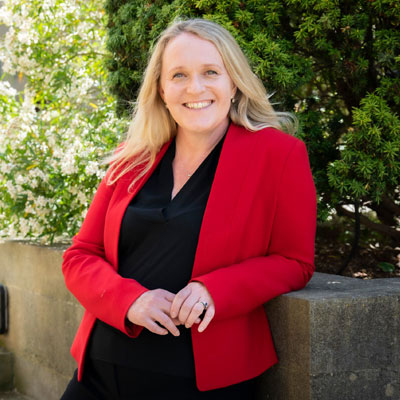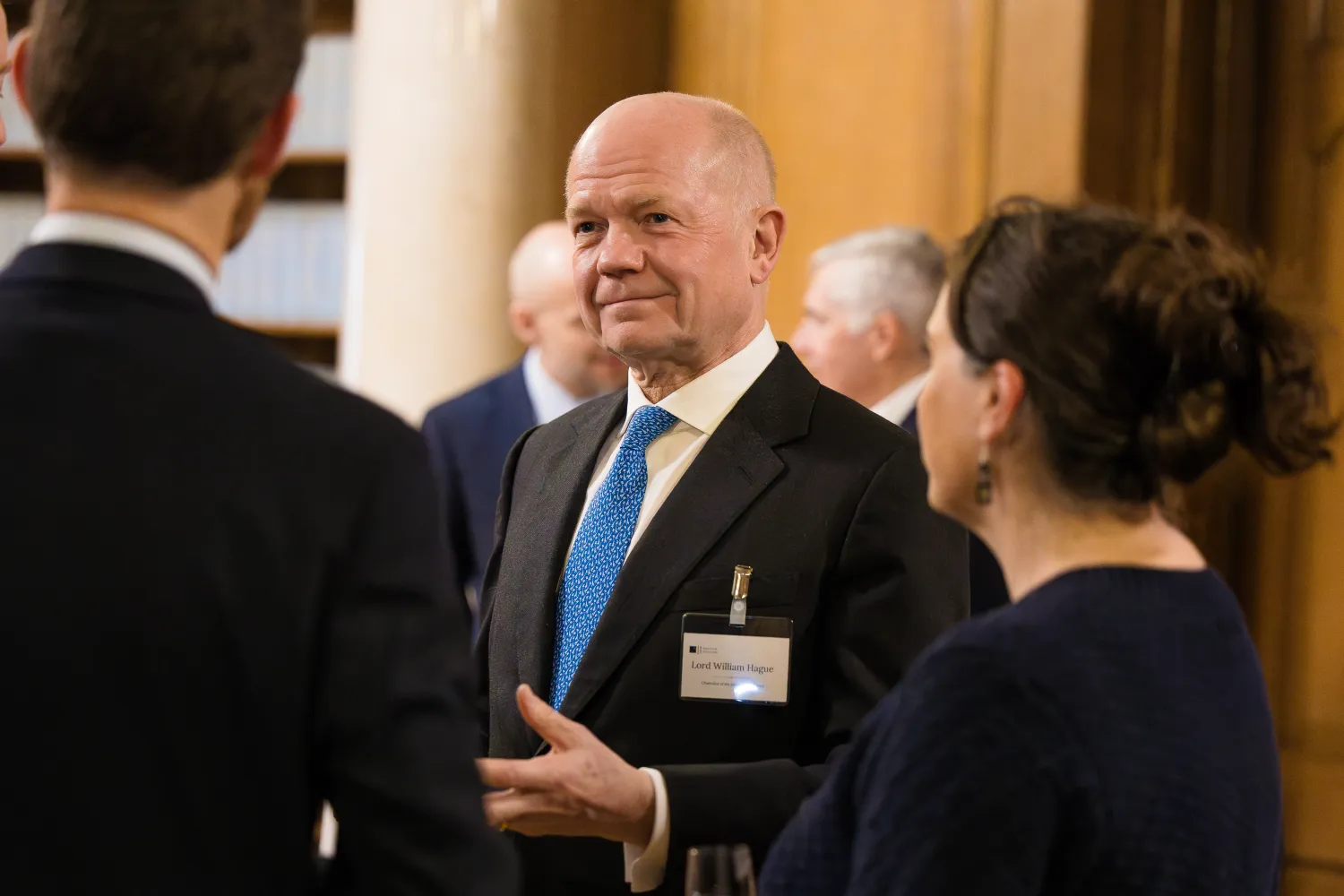
The next course will run from Thursday 16 to Saturday 18 July 2026, in person at Rhodes House, Oxford.
30 places available.
Fee includes: Welcome drinks reception, keynote speech, 2 nights accommodation, all academic sessions and materials, all meals and refreshments including 3 course formal dinner, historic tour concluding at one of Oxford historic pubs, membership of the Geopolitical Risk Forum for 12 months.
See below for more details.
Programme Agenda November 2025
Thursday 27 November 2025
15:00 Arrival and check in at Rhodes House
18:30 Welcome drinks reception and networking
19:30 High Table three-course dinner with keynote address
Friday 28 November 2025 – Diagnose and Develop
Participants will follow a structured journey: diagnose, develop, and implement. Through a series of expert-led, interactive seminars, you will gain the tools to diagnose political risk with greater precision, and develop a deeper, more strategic understanding of how political dynamics affect global markets, regulatory landscapes, and investment climates.
08:30 Breakfast
09:15 Seminar 1: The Uncertainty of US Politics, Professor Desmond King
10:45 Break
11:00 Seminar 2: The State of British Politics, Professor Jane Green
12:30 Lunch
13:30 Seminar 3: The Political Risks of Climate Change, Professor Federica Genovese
15:00 Break
15:15 Seminar 4: Political Risk in China, Professor Todd Hall
16:45 Break
17:00 Seminar 5: Political Risk in the Middle East and North Africa, Professor Neil Ketchley
18:30 Finish
19:15 Dinner at Rhodes House
20:30 Oxford historic walking tour led by Professor, William Whyte concluding at one of Oxford’s iconic pubs.
Saturday 29 November 2025 - Implement
On the final day, the focus shifts to implementation—where you will learn how to apply these insights to your own organisational context. Whether you're managing risk exposure, informing policy, or leading on global strategy, this programme will help you build the foresight and agility needed to stay ahead.
08:30 Breakfast
10:00 Workshop
12:30 Farewell Lunch
13:30 Departure
NB: specific session timings and format may be subject to change.
Fees
• 40% off group bookings (2+ participants from the same organisation) £4,140 per participant
• Further discounts available for group bookings of 3+ participants.
Fee includes: Welcome drinks reception, keynote speech, two nights accommodation, all academic sessions and materials, all meals and refreshments including three course formal dinner, historic tour concluding at one of Oxford historic pubs, and membership of the Geopolitical Risk Forum for 12 months.
Revenue generated from the Geopolitical Risk Executive Education Programme will be reinvested into the Geopolitical Risk Scholarship, supporting the next generation of scholars in this critical field. This scholarship enables outstanding students—regardless of financial background—to pursue advanced research on global political and economic challenges. By participating in this programme, you are not only enhancing your own strategic expertise but also contributing to the development of future leaders who will shape the world’s approach to geopolitical risk and resilience.
How to Apply
Register your interest for the next ‘Geopolitical Risk’ programme
Our November programme has now closed, but you can sign up to be notified as soon as applications open for the next cohort.
Register interest for July 2026.
Before applying
If your organisation will be paying for you to attend the Geopolitical Risk Programme, please ensure the relevant financial approval has been obtained and the financial contact(s) at your institution have been consulted regarding the payment method (credit or invoice) prior to your application.
Application process
You will need to provide:
- Proof of how you intend to pay for the course (credit card or PO/invoice).
- Information from your CV.
After Acceptance
Successful applicants will receive confirmation of their place, along with payment instructions. To secure your place, the deposit must be paid within seven days of receiving this offer.
If you have indicated eligibility for a discounted fee, you will first be asked to provide supporting evidence. Payment details will be sent once your eligibility has been confirmed, and you will then have seven days from that point to pay the deposit and secure your place.
Limited spaces available.
Diagnose. Develop. Implement | Professor David Doyle, Head of Department
Inspiring Teaching
Professor Desmond King

Professor Desmond King, The Uncertainty of US Politics.
This seminar addresses probable trajectories in US domestic politics including economic policy and foreign policy under the Trump administration. Some of the major trends under review include: (a) the shifting electoral landscape as the left-right ideological spectrum declines in significance against the populist-elite division; (b) the scale of domestic cultural change signalled by the administration’s strict anti-diversity rules and restructuring of bureaucratic institutions; (c) the economic and political effects of tariffs-based policy; (d) the erosion of the transatlantic (US-Europe) relationship with various implications for defence and international alliances; (e) the restructuring of geopolitics into new spheres of control.
Underlying these exceptional developments is the deep popularity of the administration and the administration’s policies. Does this popularity and the shifts in domestic and foreign policy inject a new certainty into US politics or constitute one stage in a volatile 21st century politics?
Professor Jane Green
 Professor Jane Green, The State of British Politics.
Professor Jane Green, The State of British Politics.
British politics has become considerably more volatile, unpredictable and fragmented, with major policy implications. Why?
Using 60 years of British Election Study data, this session will explain the most important social and economic changes that explain this volatility, and the political explanations that have rapidly accelerated the historic changes witnessed in British politics, with lessons for what could happen next.
Professor Todd Hall
 Professor Todd Hall, Political Risk in China.
Professor Todd Hall, Political Risk in China.
China is a space of both significant economic opportunity and risk. Whether viewed internationally and domestically, economics and politics are closely interlinked.
How are we to understand these linkages and the ways in which actors within the Chinese system navigate them?
What does this mean for the balance of opportunities and risks going forward?
In this talk, Professor Todd Hall offers an introduction to the Chinese system and the ways in which it is likely to respond to the evolving international environment.
Professor Federica Genovese
 Professor Federica Genovese - The Political Risks of Climate Change.
Professor Federica Genovese - The Political Risks of Climate Change.
This session will consider the driving and opposing forces of political conflict around climate change.
It will first focus on how environmental clashes and energy politics around decarbonisation and climate adaptation affect climate attitudes and behaviour among voters.
It will then discuss the risks that addressing and ignoring climate change conflict pose to institutions, organisations and political parties.
Professor Neil Ketchley
 Professor Neil Ketchley, Political Risk in the Middle East and North Africa.
Professor Neil Ketchley, Political Risk in the Middle East and North Africa.
This seminar explores the evolving landscape of political risk in the Middle East and North Africa (MENA), focusing on public attitudes toward democracy, governance, and foreign influence. We will examine shifting perceptions of the United States, Europe, China, and Russia amid ongoing regional instability.
Particular attention will be given to the political and economic fallout from the war in Gaza.
By analysing recent developments and public sentiment, the seminar will provide insights into the region’s political dynamics and their implications for international actors, policymakers, and businesses operating in or engaging with MENA.
Neil Unsworth

Neil Unsworth is the Head of Resilience for the University of Oxford. Neil is the Head of Risk and Resilience for the University of Oxford and a practitioner associate in the Department of Politics and International Relations. He will be running the implementation workshop on the final day of the programme. Prior to joining the University, he spent a full career in the British Army. He commanded British and multi-national forces on operations around the world for over 30 years and taught leadership, decision-making and planning at master's level at the UK Defence Academy.
Geopolitical Risk Forum
Stay ahead of global uncertainties with our exclusive Geopolitical Risk Forum, available for 12 months following the programme. This online forum offers a unique opportunity to engage with leading professors in a series of virtual breakfast sessions, where they will provide expert updates on key risk areas covered in the programme. Designed to keep you informed on the latest geopolitical developments, these interactive discussions allow you to ask questions and gain valuable insights to support strategic decision-making within your organisation.



